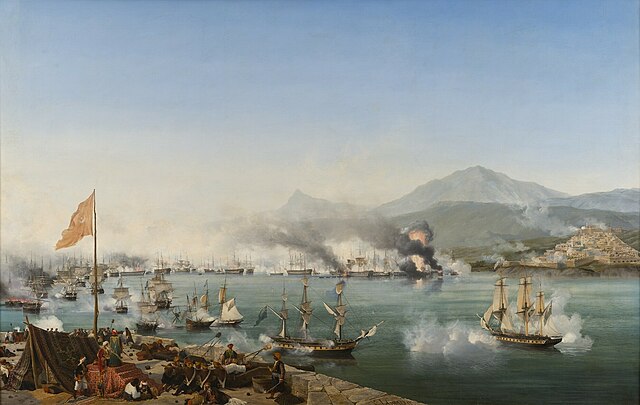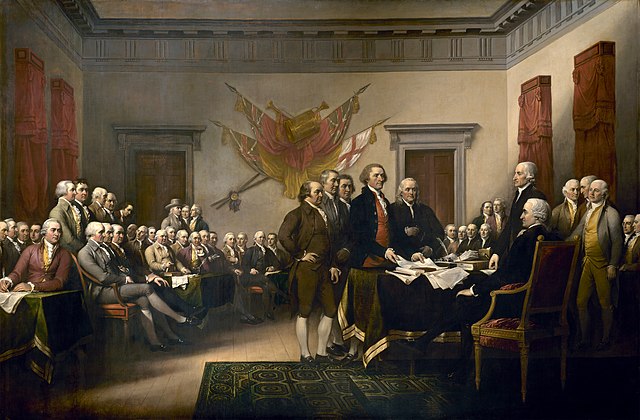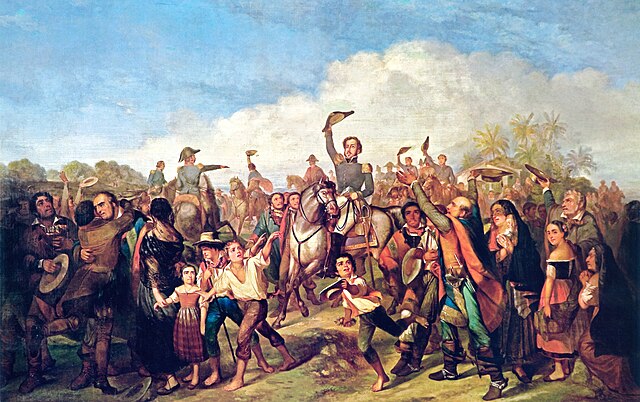Wars of national liberation
Wars of national liberation, also called wars of independence or wars of liberation, are conflicts fought by nations to gain independence. The term is used in conjunction with wars against foreign powers to establish separate sovereign states for the rebelling nationality. From a different point of view, such wars are called insurgencies or rebellions. Guerrilla warfare or asymmetric warfare is often utilized by groups labeled as national liberation movements, often with support from other states.
Allied naval intervention at the Battle of Navarino by Ambroise Louis Garneray, part of the Greek War of Independence against the Ottoman Empire
Estonian artillery preparing for a battle during the 1918–1920 Estonian War of Independence
Independence is a condition of a nation, country, or state, in which residents and population, or some portion thereof, exercise self-government, and usually sovereignty, over its territory. The opposite of independence is the status of a dependent territory or colony. The commemoration of the independence day of a country or nation celebrates when a country is free from all forms of colonialism; free to build a country or nation without any interference from other nations.
The Thirteen British Colonies on the east coast of North America issued a Declaration of Independence in 1776
Chile, one of several Spanish territories in South America, issued a Declaration of independence in 1818
Prince Pedro surrounded by a crowd in São Paulo after breaking the news of Brazil's independence on 7 September 1822.
The Finnish Senate of 1917, Prime Minister P. E. Svinhufvud in the head of table. The Senate declared Finland independent on 4 December 1917, and it was confirmed by parliament 6 December 1917 which became the Independence Day of Finland.






